This website was created as part of the crossCert project and serves as a cornerstone of the crossCert project, dedicated to facilitating a seamless exchange of knowledge on Energy Performance Certificates (EPCs) among European stakeholders. By leveraging insights from over 140 buildings in 10 countries, we aim to foster innovation and collaboration, ensuring that the future of energy certification is built on a foundation of shared expertise and harmonized standards for sustainability across the EU.
The crossCert partners are:
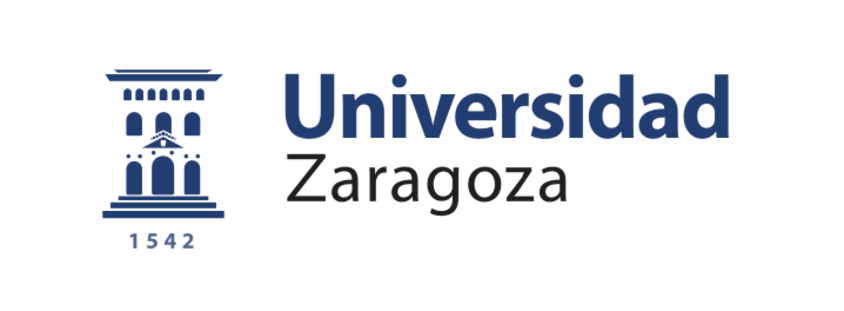
Universidad de Zaragoza
Project Coordinator
The University of Zaragoza is one of the oldest in Spain, with its origins dating back to the Roman times. It became a university in 1542. The University is one of the largest in Spain, with 3911 academic staff and around 35,000 students. Its annual budget in 2018 was 270 million Euro. The university has 22 Faculties and Schools, and several research institutes. The project will be carried out by researchers from the University’s School of Engineering and Architecture. This is a broad-ranging Engineering school, offering degrees and research in Industrial, Mechanical, Electrical, Electronic, Computer, Chemical and Product Design Engineering, as well as in Energy and Architecture. The faculty is outward-looking, with a clear research orientation. Leading-edge research is conducted for industry and the public sector, such as national, regional or local governments.
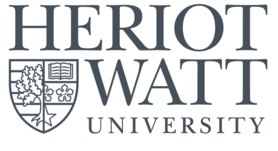
Heriot Watt University
Project Partner
Heriot-Watt University, in Edinburgh, dates back to 1821 and was granted university status in 1966. It was named International University of the year in the Sunday Times Good University Guide in 2018, recognising the active campuses it has in the UK, Dubai and Malaysia. It was also ranked amongst the top 300 universities in the world in the Times Higher Education World University Rankings. Globally the university has approximately 31,000 students, 2,200 staff (of which 1,900 are in the UK), and a total budget of £200 million. The team contributing to this project will be from the School of Energy, Geoscience, Infrastructure and Society, a large, multi-disciplinary unit with high-quality teaching and research in areas of energy, the built environment, and life sciences.
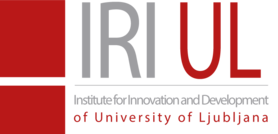
Institute for Innovation and Development of University of Ljubljana
Project Partner
IRI UL is a joint venture between the University of Ljubljana (UL) and ten technologically advanced and successful Slovenian companies as a non-profit research and development institute with a mission to initiate the creation/attainment, transfer, distribution and application of knowledge – in other words, to promote the integration of the innovation triangle (research – education – innovation) by transferring research results into practice and commercial exploitation. Therefore, a task of IRI UL is to establish reciprocal and a long-term partnership between the University of Ljubljana, Slovenian industry and public institutions to foster research and development activities. With access to the intellectual capital of the UL, the institute needs to effectively develop national and international research and development projects. IRI UL is the official energy manager for UL, as such has prepared and monitors the implementation of the University Sustainable Energy Action Plan (SEAP), and established an Energy Management system for UL public buildings.

EC Network
Project Partner
EC Network A/S (ECNet) is a leading Danish company in the field of sustainable energy, established in the year 2000. The mission of EC Network is to make a professional contribution to the dissemination of sustainable energy and environmental systems. The Company has been involved in numerous technical assistance projects in Europe and Asia as well as a significant number of EU research and promotion projects (IEE, FP5, FP6, FP7, H2020 etc.).

Ente público Regional de la Energía de Castilla y León
Project Partner
EREN is a public regional energy agency of the Castilla y León region in Spain and the tool for the Castilla y León’s economic and social representatives of facing up to energy questions related to energy efficiency, promoting of renewable energies and sustainable mobility, focused from local entities to SME’s and citizens, developing in the region a great energy potential, and promoting the efficient use of energy resources, always taking into account the best environmental balance towards a low carbon economy, contributing to the regional sustainable energy development. Its activities cover the following areas: Energy planning & development; Renewable Energies & energy efficiency: technical advisory to public entities, info to citizens; Programmes management and co-operation: local, regional, national and European level; Information, Dissemination and Training EREN has 20 employees which 90% of staff are technicians with long experience in energy issues. It is average turnover is around 7M€ per year.
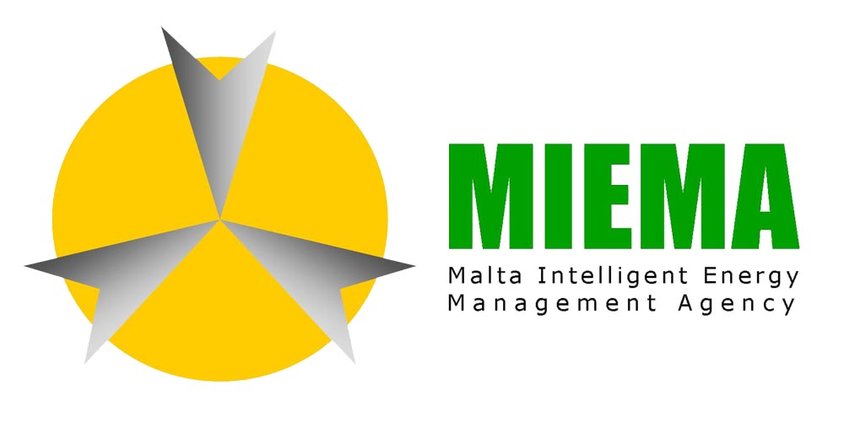
Malta Intelligent Energy Management Agency
Project Partner
The Malta Intelligent Energy Management Agency (MIEMA) was set up in June 2007 with the support of the Intelligent Energy – Europe Programme and a wide array of public institutions including Ministries, the Local Councils’ Association and the University of Malta. MIEMA is a non-profit, public-equivalent body initially set up to promote energy efficiency and the use of renewable energy sources. The agency aims to be at the forefront of the national and European effort for sustainable energy, promoting green growth and fighting climate change. Within its sphere of competence, it provides support to policymakers and develops and implements projects on a national level. Its activities focus on 5 main areas: renewable energy, energy efficiency in buildings, clean transport, eco-innovation, and training and awareness. MIEMA is a member of the European Federation of Agencies and Regions (FEDARENE). In Malta, it works closely with the relevant ministries, municipalities, academic institutions, national agencies, SME networks, professional bodies and others. Over the past ten years, MIEMA has implemented more than 30 European projects, all related to sustainable energy, under a range of different programmes. The agency presently has a team of 10 professionals with different areas of expertise including management, policy development, engineering, architecture and urban planning.

Foundation Center for Energy Efficiency EnEffect
Project Partner
The Center for Energy Efficiency EnEffect is a non-profit NGO working, founded in 1992 in Sofia, Bulgaria. Its establishment has been called forth by the acute need of energy conservation in households, industry, transport, construction, agriculture and in the energy sector. By its intensive involvement in activities to improve energy efficiency, EnEffect supports the efforts of the Bulgarian central and local authorities and the private sector actors for sustainable energy development. The current number of employees is 13.

Krajowa Agencja Poszanowania Energii S.A. (The Polish National Energy Conservation Agency)
Project Partner
KAPE was established in 1994 by the Act of the Polish government, as an agreement of shareholders implementing the national energy Policy. The National Fund for Environmental Protection and Water Management is the main shareholder of KAPE. Since the beginning, KAPE has been operating as a joint stock company currently employing a permanent staff of around 40 people.
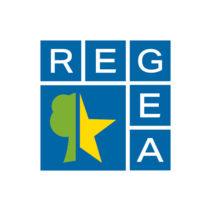
Regionalia Energetska Agencija Sjeverozapadne Hrvatske (North-West Croatia Regional Energy Agency)
Project Partner
REGEA, North-West Croatia Regional Energy Agency, was established as a non-profit institution by Zagreb County, Karlovac County, Krapina-Zagorje County and the City of Zagreb under the framework of the Intelligent Energy Europe (IEE) programme. Current number of employees is 32.

Centre for Renewable Energy Sources and Saving
Project Partner
The Centre for Renewable Energy Sources & Energy Saving (CRES) is the Greek national centre for Renewable Energy Sources (RES), Rational Use of Energy (RUE) and Energy Saving (ES). CRES was instituted as the national coordination centre in its areas of activity by the Law 2244/94 (Production of Electricity from RES) and 2702/99 (Various Regulations). CRES is a public entity, under the supervision of the Ministry of Environment, Energy and Climate Change; but with financial and administrative independence. CRES has a scientific staff of more than 75 highly qualified engineers and other scientists (the total personnel numbers about 130 people) and, over the years, has participated in more than 900 European and national projects. These include RTD projects, demonstration projects, energy information systems, feasibility studies, technical and economic studies, market research, as well as training and promotional activities on the RES/RUE/ES related issues.
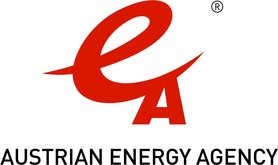
Austrian Energy Agency
Project Partner
The Austrian Energy Agency was established in 1977 as a non-profit-making scientific association. Its General Assembly comprises some of the most distinguished representatives of the Austrian Energy Sector. In 2011, the Austrian Energy Agency counted among its approximately 50 members the federal government, the nine federal provinces, important enterprises from the fields of energy industry and energy engineering, banks, interest groups, scientific organisations, energy agencies and consulting companies. This diversified structure is an essential prerequisite for independence and at the same time guarantees a good balance between theoretical scientific background and practical approach. The Austrian Energy Agency develops strategies for sustainable and secure energy supply, provides advice and training, and is the networking platform for the energy industry. “klimaaktiv”, the climate protection initiative launched by the Austrian Federal Ministry for Climate Action, Environment, Energy, Mobility, Innovation and Technology (BMK) is managed by the Austrian Energy Agency and coordinates the various measures in the areas of mobility, energy saving, construction & renovation and renewable energy. In addition, the Austrian Energy Agency operates the Energy efficiency monitoring body on behalf of the BMK. AEA provides scientifically founded advice for decision-makers in politics, business and administration – both nationally and internationally. As a competence centre for energy AEA concentrates on three strategic areas: “mission zero”, transformation and smart energy. Focusing on mission zero the Austrian Energy Agency pursues the long-term objective of building a fossilfuel-free future through strategy development and the implementation of concrete measures. The Austrian Energy Agency employs a staff of around 75 people including secretarial support and has 8.5 million Euros annual turnover.
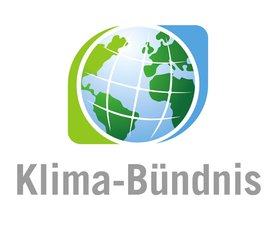
Klima-Bündnis / Alianza del Clima e.V.
Project Partner
Climate Alliance is the largest European city network dedicated to climate action. Through the Climate Alliance, some 1,700 member municipalities and districts covering 26 European countries as well as a variety of regional governments, NGOs and other organisations are actively working to combat climate change. The city network was founded in 1990 with the mission to elaborate and implement local climate protection measures especially in the fields of energy and mobility and to cooperate with indigenous peopleto protect the tropical rainforests. Climate Alliance members commit to reduce greenhouse gas emissions by 10% over 5 years and halving of per capita emissions by 2030 (baseline 1990).
Co-coordinating the Covenant of Mayors Office, Climate Alliance plays a key role in technical and administrative support for European local authorities carrying out methodological work, capacity building, guidelines, and monitoring. Outside Europe, the Climate Alliance European Secretariat is also active in helping to spread the successful examples and lessons learned via the Covenant of Mayors.
